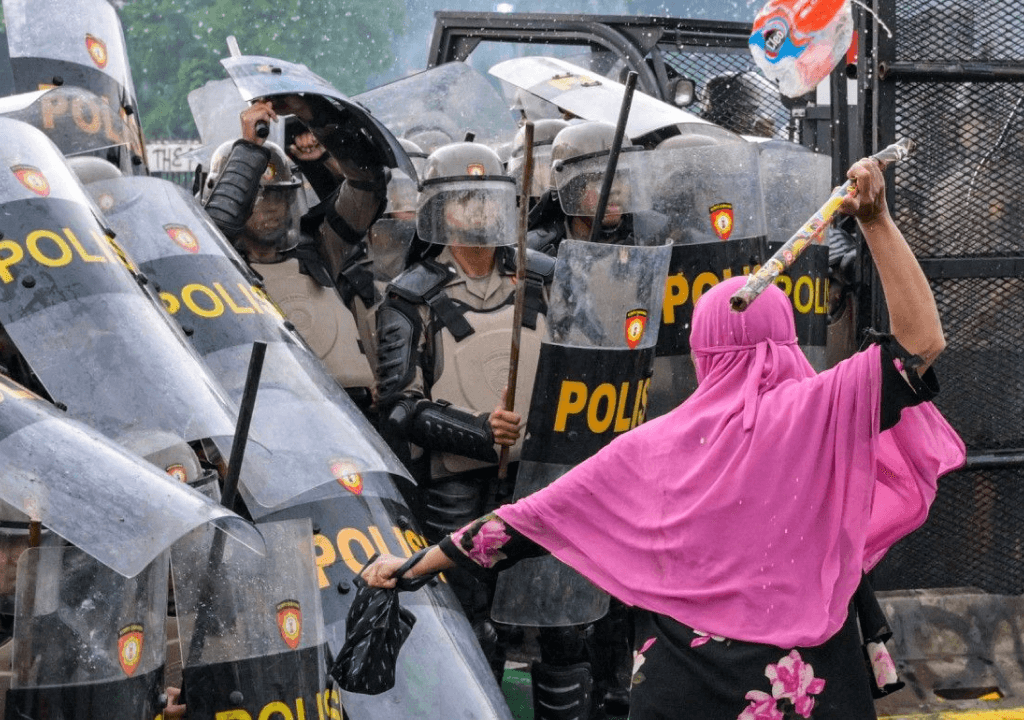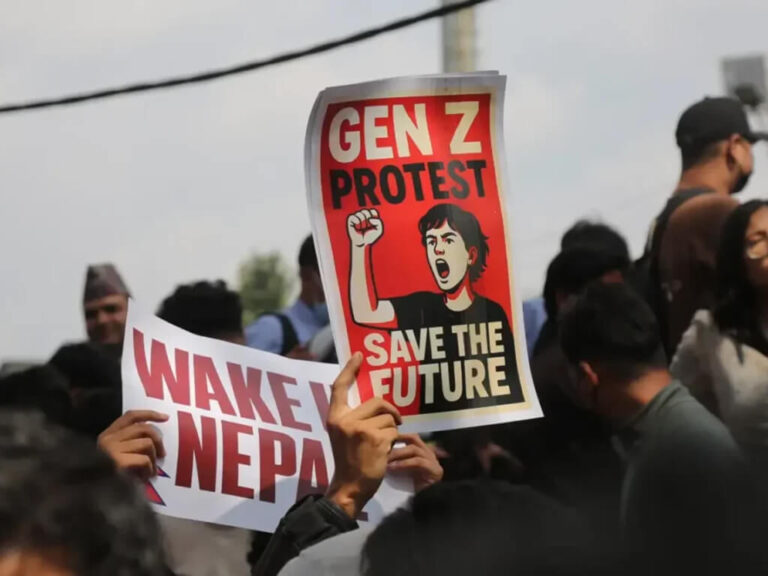Across much of Asia, where most people are in their twenties, young citizens are rising against democracies they view as hollow, weighed down by corruption, dynastic politics, and limited opportunities. Indonesia, one of the world’s largest democracies, has now been swept up in the same wave of unrest.
What began as outrage over lavish perks for lawmakers has grown into a broader movement, sparked by the death of a 21-year-old delivery driver in Jakarta. His death became a rallying cry, turning long-simmering frustration into protests that have spread nationwide.
The unrest, which started in the capital, quickly reached cities across the country, presenting the most serious test yet for President Prabowo Subianto, a former general who has held office for less than a year. Officials insist they maintain control, but the scale of the demonstrations suggests that politicians are far from secure.
Frustration of Youth turned into riot
The unrest ignited over President Prabowo’s latest moves, including lavish housing allowances for lawmakers that were nearly ten times Jakarta’s minimum wage. Public outrage deepened as the government simultaneously imposed austerity measures, cutting budgets for education, health, and public works. Social media amplified the anger, drawing crowds to the streets as many Indonesians placed more trust in online reports than in political reassurances.
On August 25, thousands of protesters gathered outside parliament to denounce the allowances. By Friday, the demonstrations had turned deadly. A 21-year-old delivery driver in Jakarta was killed when an armored vehicle from an elite paramilitary police unit drove through a group of demonstrators, sparking a new wave of fury.
The unrest spread quickly across the country. Government buildings and police stations were set on fire in Gorontalo on Sulawesi, Bandung on Java, Palembang on Sumatra, Banjarmasin on Borneo, Yogyakarta on Java, and Makassar on Sulawesi.
In Makassar, at least three people died when protesters set a council building ablaze, and a fourth was beaten to death by a mob that mistakenly identified him as an intelligence officer. A student in Yogyakarta was killed during clashes with riot police, while a 60-year-old pedicab driver in Solo died after exposure to heavy tear gas.
Authorities report that more than 1,240 people have been detained in Jakarta alone following five days of protests. According to the city’s governor, Pramono Anung, the damage to buses, subway systems, and other infrastructure is estimated at 55 billion rupiah or roughly $3.3 million. He also confirmed that 700 people were injured in the unrest.
Government to Act Firmly, as Usual
President Prabowo, who canceled a high-profile trip to China for a major military parade, on Sunday ordered security forces to take decisive action against the protests. “There are signs of unlawful acts, even leading to treason and terrorism,” he said. “I have instructed the police and the military to act as firmly as possible against the destruction of public facilities, looting of private homes, and attacks on economic centers, all in accordance with the law.”
At the same time, Prabowo demonstrated political awareness, allowing the protesters’ demands to be addressed selectively. In a multi-ethnic, predominantly Islamic country, he recognized how quickly protests could escalate if left unchecked. He announced that lawmakers’ perks, including the controversial housing allowance, would be cut, and overseas trips curtailed. The president also confirmed that police are investigating seven officers involved in the death of the 21-year-old delivery driver in Jakarta, and he has ordered a swift, transparent inquiry that the public can follow. Prabowo pledged that the administration would provide financial support to the driver’s family.
But that does not mean he sees everything with goodwill. It appears he now feels an urgent need to regain control immediately.
Prabowo May Increase Reliance on the Military
“A big nation like ours,” President Prabowo Subianto told troops in West Java, “Needs a strong military. No nation can be independent without one.” In a speech inaugurating military units this month, the former special forces commandant signaled that Indonesia must strengthen its defenses to protect sovereignty and resources. The address marked a departure from the softer, more approachable image, widely called the “cute grandpa” persona, that Prabowo projected during the last election to win public favor.
Prabowo began his presidency with a militaristic boot camp for his cabinet, and less than a year in office, he is expanding the military presence on the ground. One hundred new battalions have already been formed with plans for 500 more over the next five years, including additional units for the special forces and marines. These battalions, intended to support agriculture, animal husbandry, and food security, will not receive combat training. The defense ministry has not disclosed the full size of the new units.
The increasing role of the military in civilian affairs has drawn criticism. Observers note echoes of the country’s authoritarian past. Indonesia ended Suharto’s 32-year dictatorship in 1998, yet some analysts warn that fragile democratic institutions make the country vulnerable to a resurgence of military influence.
In March, the Prabowo government passed a controversial law allowing armed forces personnel to hold more civilian positions. This July, the military announced plans to manufacture medicines for public distribution, and a special taskforce including military officers was established within the attorney general’s office to reclaim land from expired palm plantations.
Prabowo’s actions reflect a deep distrust of the civilian bureaucracy and a desire to consolidate control. Analysts say these measures strengthen the military’s influence over society, shaping policy and potentially intimidating the public.
Lessons From Bangladesh, Warnings for Asia
Analysts note clear parallels with Bangladesh. Both nations have large, youthful populations, anger amplified by social media, and a prominent role for political Islam. Their political dynamics also show notable similarities. In Bangladesh, authoritarian leaders maintained tight control while suppressing certain political movements. Sheikh Hasina governed with a firm hand, emphasizing military authority over civilian influence. In Indonesia, President Prabowo Subianto appears to be taking a similar approach, combining a strong military presence with centralized political control. While the Indonesian government now seems to have restored order, understanding these underlying trends remains crucial for long-term stability. This is not only about Bangladesh and Indonesia; the cycle of youth unrest and government response reflects a broader pattern emerging across Asian democracies.








